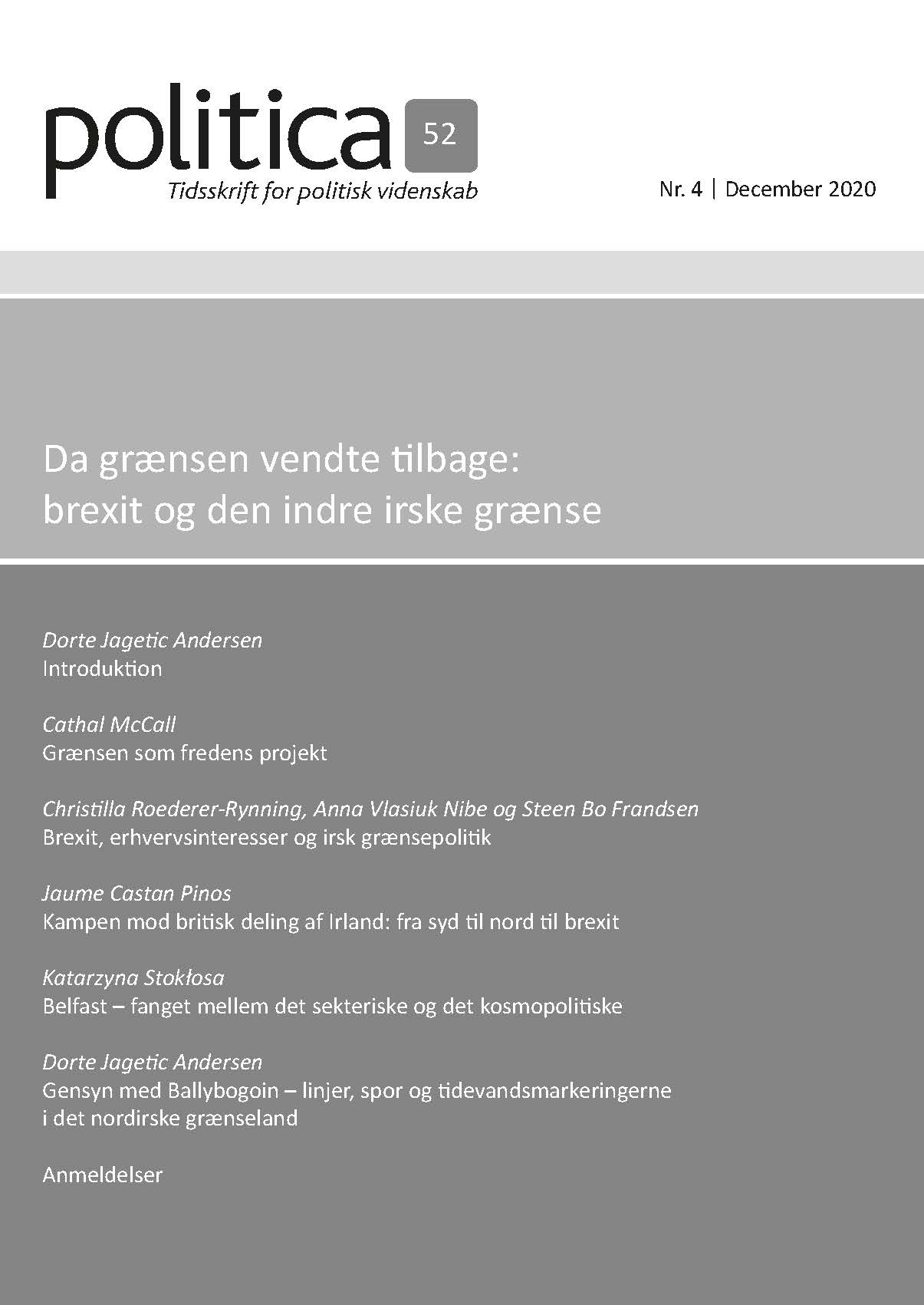Belfast, a city caught between sectarianism and cosmopolitanism
DOI:
https://doi.org/10.7146/politica.v52i4.130837Nøgleord:
Belfast, divided cities, sectarianism, physical division, social segregation, overcoming barriersResumé
Divided cities are not that usual in Europe anymore. Moreover, mostly being a result of war and conflict, as well as geopolitical change influencing Europe and the world over the last 200 years, it is not many of them that have their roots in an imperial past and the kind of economic and social distinctions between groups as the one present in Belfast. This article investigates the social boundaries and distinctions. They increased massively in 1969 – together with physical barricades and partitions – as a direct consequence of violence. In addition, this article will investigate whether inhabitants of Belfast are ready to develop a common discourse about the divisions and separations they have experienced in the past. The most dramatic impacts of partition in every divided city include loss of life and physical injury. Conditions for a common perception of the past are extremely difficult in divided towns where violence has occurred. Overcoming the psychologically negative impact of the towns’ division is usually far more time-consuming than overcoming physical barriers. In Belfast, grassroots initiatives and the voluntary sector are particularly significant in this process.
Publiceret
Citation/Eksport
Nummer
Sektion
Licens
LicensOphavsretten tilhører Politica. Materialet må ikke bruges eller distribueres i kommercielt øjemed.





